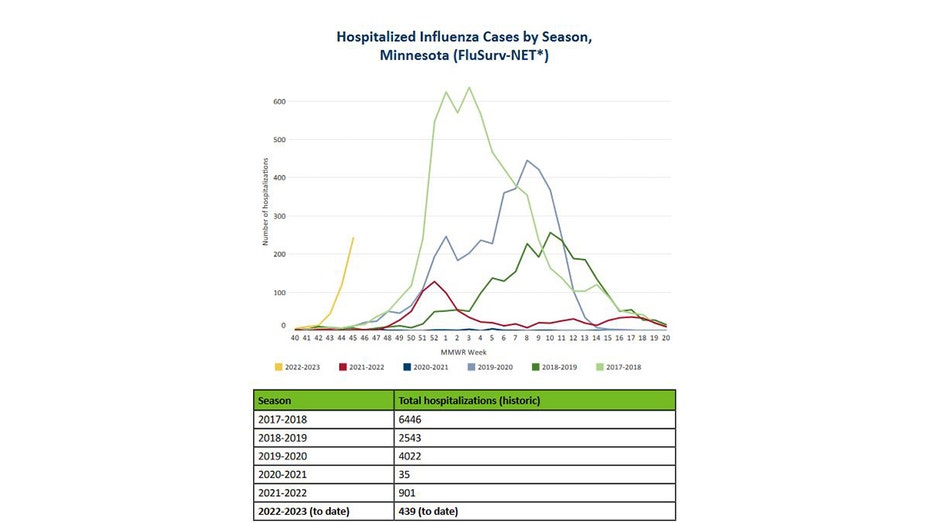Health officials monitor antibiotics usage, hope for reduced resistance

The Minnesota Department of Health (MDH) is hoping to stave off deceased antibiotic effectiveness by partnering to spread awareness about improper usage.
(FOX 9) - The Minnesota Department of Health (MDH) is hoping to stave off decreased antibiotic effectiveness by partnering to spread awareness the overuse of antibiotics.
Antibiotic resistance can happen when bacteria from germs that cause infections become able to resist the medications designed to kill them, or inhibit growth. Bacteria that become resistant to antibiotic medications can lead to more severe infection, or death.
According to health officials, the more antibiotics are used inappropriately or when not needed, the more likely bacteria are to develop resistance.
RELATED: Flu season sweeps through Minnesota, dozens of schools face outbreaks
Hospital-related resistant infection and deaths increased 15% nationally in 2020, according to the Centers for Disease Control and Prevention (CDC).
In response, MDH says it will begin to refocus educational efforts and expand its work with partners to slow the development and spread of antibiotic resistance, according to a press announcement. The department will use its surveillance data to guide and measure progress on prevention-focused initiatives in hospitals and nursing homes to detect and prevent resistant bacteria.
Gov. Tim Walz has also proclaimed Nov. 18–24 "Antibiotic Awareness Week" in Minnesota.

According to the Minnesota Department of Health Influenza and Respiratory Illness Activity Report, for the week ending Nov. 12, 2022, despite the state being in the "minimal activity" level for the flu nationally, 243 people were hospitalized last we
The week coincides with U.S. Antibiotic Awareness Week (USAAW) and similar observances across the globe to raise awareness of antibiotic resistance and the importance of improving how antibiotics are used.
According to the Minnesota Department of Health Influenza and Respiratory Illness Activity Report, for the week ending Nov. 12, 2022, despite the state being in the "minimal activity" level for the flu nationally, 243 people were hospitalized last week.
"Antibiotics are critical to medicine and public health," said Dr. Amanda Beaudoin, director of the Minnesota One Health Antibiotic Stewardship Collaborative. "We count on them daily to treat bacterial infections, but their impact is waning. For them to remain effective, we must commit to using them responsibly."
Each year in the U.S., millions of unnecessary antibiotic prescriptions are written during cold and flu season, but antibiotics will not work against the common cold, influenza, and other viral illnesses, like COVID-19, according to the announcement.

